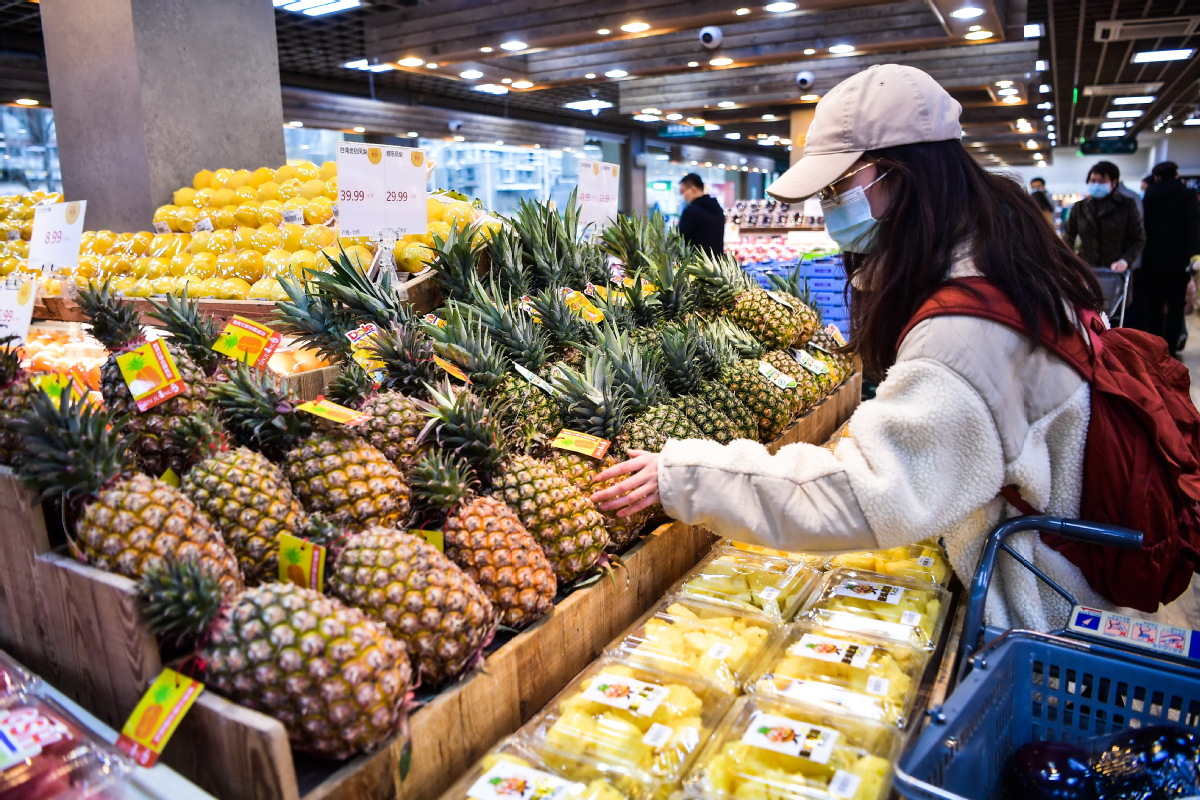China will take more steps to curb commodity price speculation and keep prices stable, showing zero tolerance for illegal activities, according to the country's top economic regulator. The National Development and Reform Commission, together with other four central departments, held a meeting on Sunday on the rapid commodity price gains this year, warning key enterprises in the bulk commodity sector to maintain normal market order. The talks came after Premier Li Keqiang chaired the State Council's Executive Meeting on Wednesday, calling for careful analysis of reasons for the recent spate of rapid commodity prices increases and adopting measures in a targeted and holistic approach to ensure the supply of commodities and keep their prices stable. The NDRC meeting said the recent price rally in commodities is driven partly by the transmission of global price rise and overspeculation has also pushed up the prices. Key industrial metal enterprises are required to promote the coordinated development of upstream and downstream industries and keep the industrial ecology healthy. The meeting said regulators would closely monitor the commodity price changes and strengthen regulation of both futures and spot markets. They will also crack down on market violations such as monopolies in commodities markets and the spread of false information and hoarding. The message caused domestic commodity prices to plunge on Monday, with the main futures contract for iron ore dropping more than 5 percent and rebar decreasing nearly 4 percent. The shares of iron and steel-related companies traded in Shanghai and Shenzhen also dipped 1.73 percent on Monday, according to Shanghai-based information provider Wind Info. Zhou Maohua, an analyst at China Everbright Bank's financial market department said, "The government is actively formulating and deploying policies to ensure supply and price stability of industrial raw materials, which will help stabilize the market and enterprises' expectations." Zhou said while the rise in commodity prices has led to an increase in production costs for Chinese companies in some mid-and downstream industries, it has had limited effect on the prices of consumer goods. "However, the government still needs to take steps to keep commodity prices stable. More efforts are needed to increase effective market supply, crack down on market violations and increase fiscal and financial support for some badly hit companies with bigger potential." This round of price increases is the result of multiple factors, especially excessive market speculation, experts said. The government's latest talks with key enterprises demonstrated its determination to rein in market irregularities and keep commodity prices stable. Tao Jin, deputy director of the macroeconomic research center of the Suning Institute of Finance, said the government's continued efforts to keep prices stable will encourage raw materials enterprises in upstream industries to increase production. "More effort should be made to increase domestic supplies and encourage cooperation between Chinese industrial metals enterprise and overseas entities," Tao said. Wu Chaoming, chief economist at Chasing Securities, said this round of commodity price increases may reach a high in the third quarter, and then the price will fluctuate at a high level. To better cope with the situation, enterprises should take measures such as increasing support for technological innovation, reducing the use of raw materials, enabling more efficient use of materials and encouraging the use of alternative materials, Wu added.
Govt to curb commodity price speculation
Editor:贺予菁
Source:China Daily
Updated:2021-05-25 17:09:26
Source:China Daily
Updated:2021-05-25 17:09:26
Special
Contact
Welcome to English Channel! Any suggestion, welcome.Tel:0731-82965627
lisl@rednet.cn
zhouqian@rednet.cn











